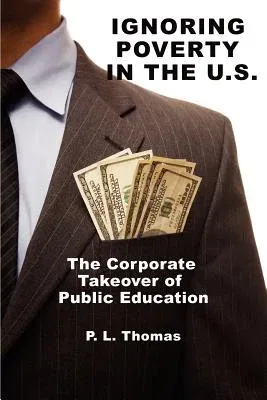Ignoring Poverty in the U.S.: The Corporate Takeover of Public Education
examines the divide between a commitment to public education and our
cultural myths and more powerful commitment to consumerism and corporate
America. The book addresses poverty in the context of the following: the
historical and conflicting purposes in public education-how schools
became positivistic/behavioral in our quest to produce workers for
industry; the accountability era-how A Nation at Risk through NCLB have
served corporate interest in dismantling public education and dissolving
teachers unions; the media and misinformation about education; charter
schools as political/ corporate compromise masking poverty; demonizing
schools and scapegoating teachers-from misusing the SAT to VAM
evaluations of teachers; rethinking the purpose of schools-shifting from
schools as social saviors to addressing poverty so that public education
can fulfill its purpose of empowering everyone in a democracy; and
reframing how we view people living in poverty-rejecting deficit views
of people living in poverty and students struggling in school under the
weight of lives in poverty. This work is intended to confront the
growing misinformation about the interplay among poverty, public
schools, and what schools can accomplish while political and corporate
leadership push agendas aimed at replacing public education with
alternatives such as charter schools. The audience for the publication
includes educators, educational reformers, politicians, and any member
of the wider public interested in public education.


